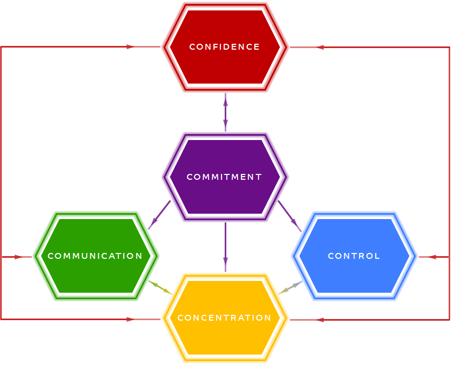
The 5Cs is a program aimed at increasing your awareness of psychological and social skills that can be introduced to your athletes through your coaching. Beyond your technical or tactical role as a coach, you can influence the Commitment, Communication, Concentration, Control and Confidence of your athletes. Helping athletes to shape and experience these qualities and skills through training and competition is a significant and valuable role for you as a coach.
Successful athletes are typically those who are best able to: regulate their emotions, fix their attention, utilise effective interpersonal skills, and remain highly motivated and self-assured in the face of consistent challenges. These behaviours are the hallmark of mentally tough, emotionally intelligent athletes, and can be grouped under the 5Cs of: Commitment, Communication, Concentration, Control, and Confidence.
Let’s take a brief look at each ‘C’ and what your coaching might start to embrace when you focus on each C with intent.
If you would like to become a 5C coach, or if you would like more information, check out our services page or get in touch.
For advice on how to use the 5Cs in your own practice as a coach, you can also view our “Top Tips for Coaches” resource, linked below.

